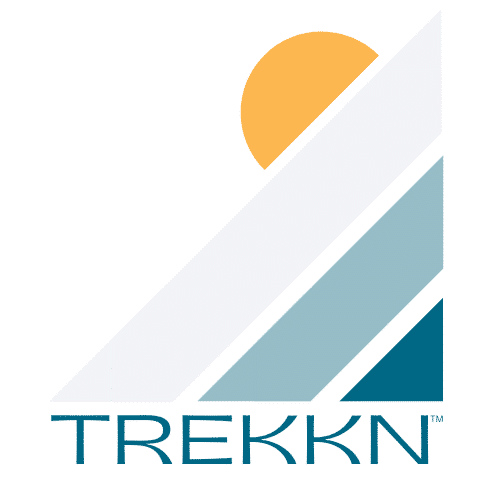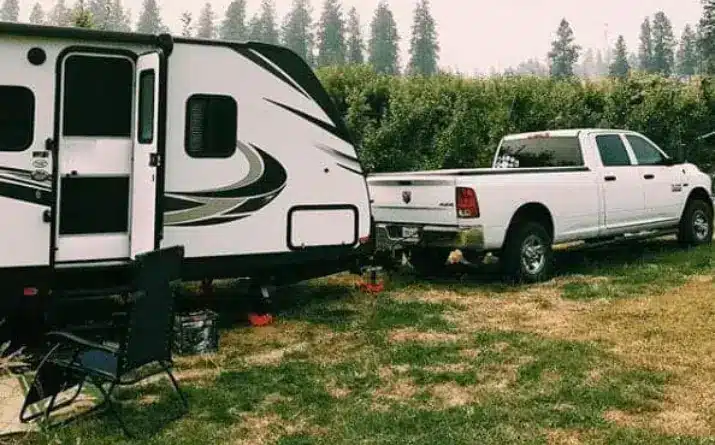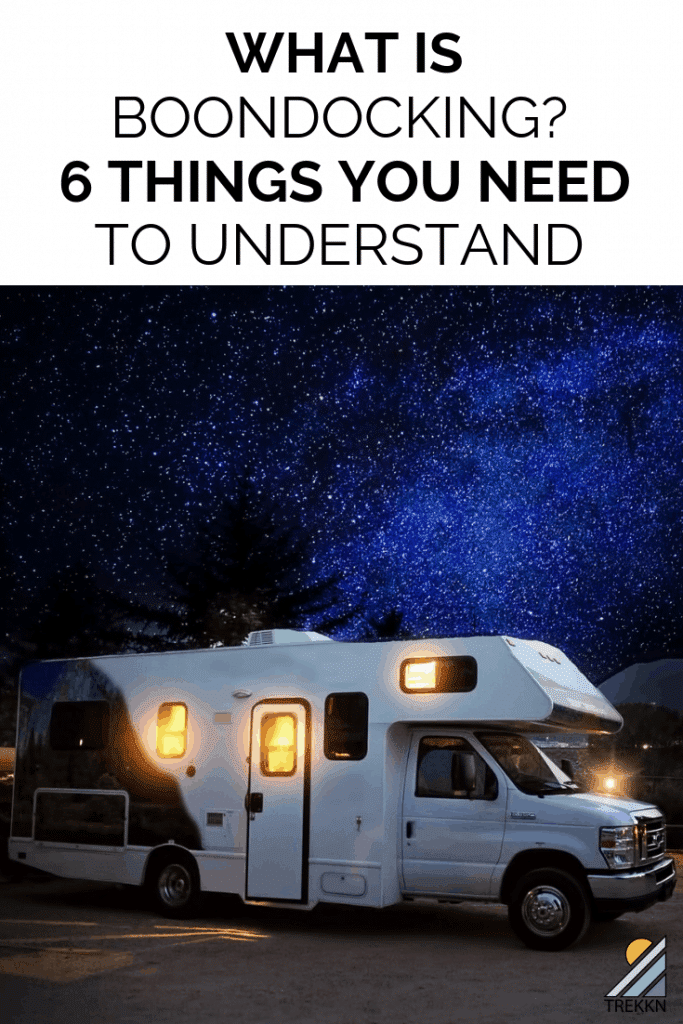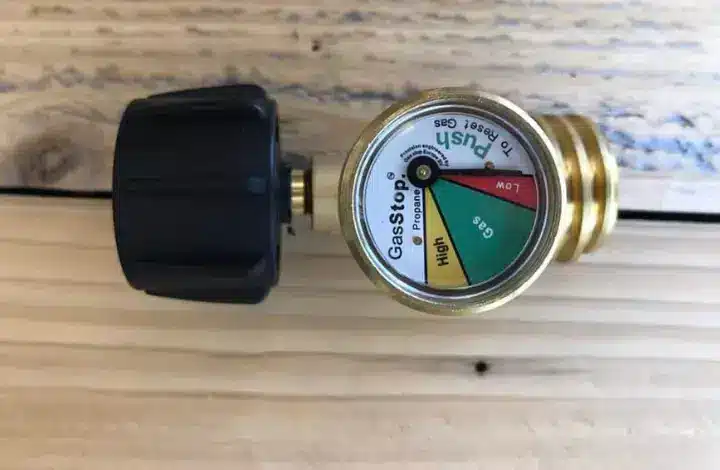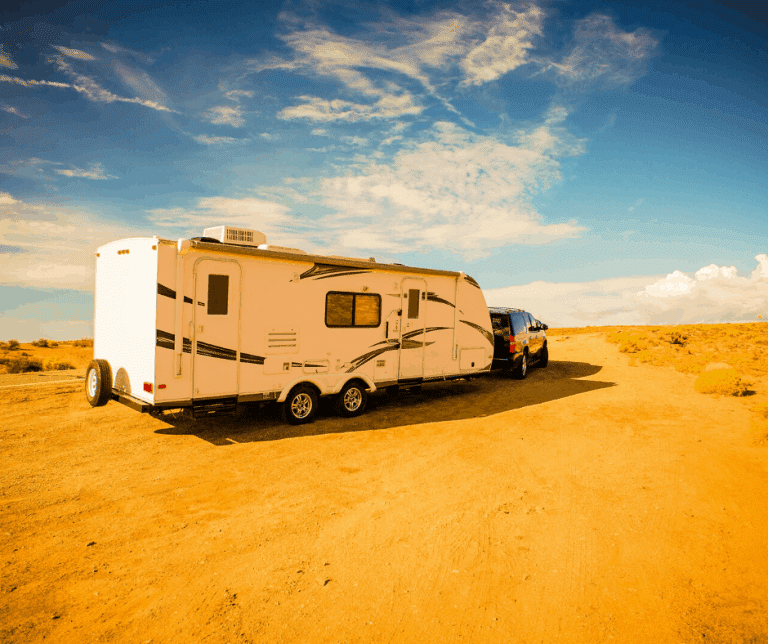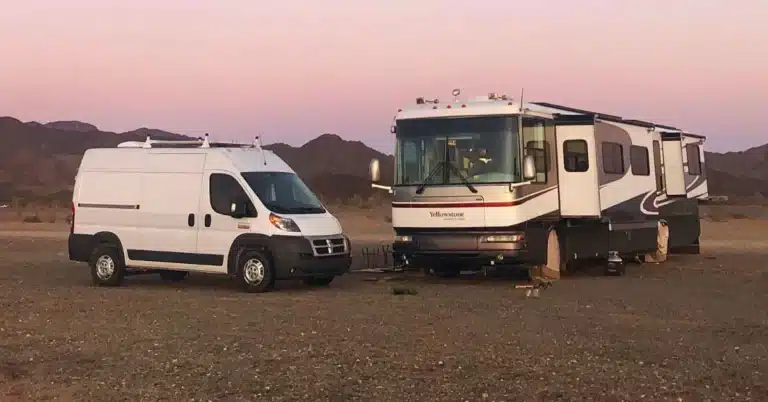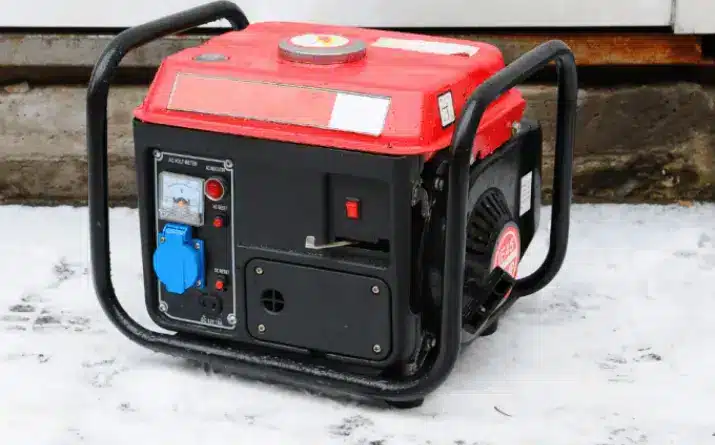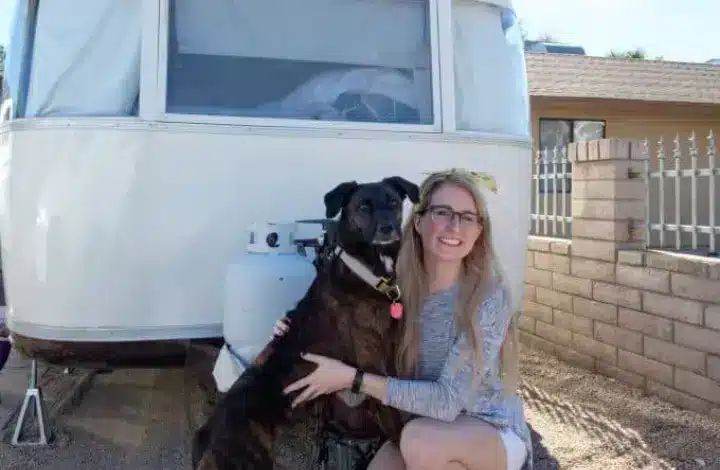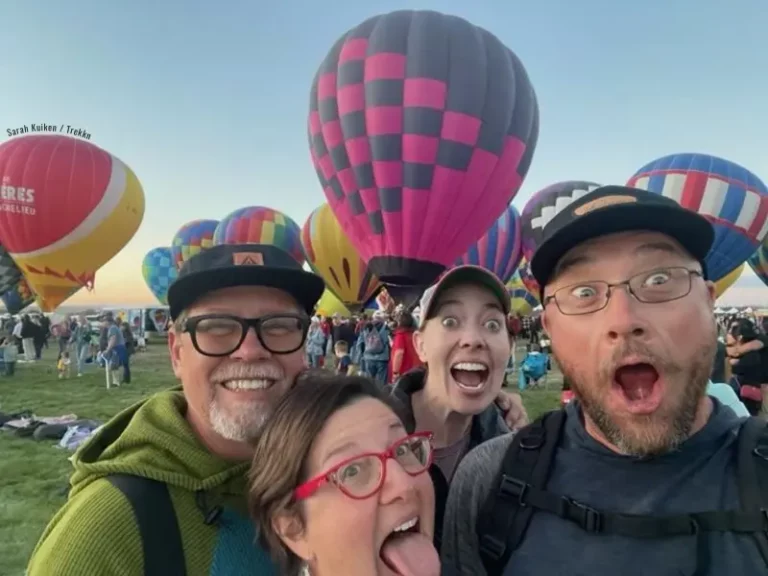What Is Boondocking? 6 Things You Need to Understand
What is boondocking? It’s a pretty simple question, but the answer to this question will depend on who you happen to ask. I’ve done a little bit of RV boondocking (also known as dispersed camping, boondock camping, dry camping, free camping, and wild camping). Let me tell you, I sincerely wish I would have taken the opportunity to do more.
As we look forward to future RV adventures, I hope to boondock a lot more often to enjoy those “wide open spaces” that our country offers. I want to share with you the top 6 things you need to know about boondocking so you can decide if it’s for you or not.
Sound good? Then let’s go…
What Is Boondocking? 6 Things You Need to Understand
Boondocking is going to look a bit different in each and every scenario you encounter. We want to get the basic gist of it so that you know whether to prepare for an adventurous weekend of this mysterious activity or run quickly in the opposite direction.
Point #1: Boondocking Always Involves an RV
Hey, maybe you were already crystal clear on this point, but I can’t really assume that when you just type “what is boondocking” into the search box. Right? Don’t blame me.
I mean I don’t want you looking like a complete fool when you go tell your friends that you are preparing to go boondocking…and then they whisper in hushed tones behind your back that you don’t own an RV. Minor detail…
So yes, when we are talking about boondocking, we are talking about camping of the RV variety. That could be a million dollar Tiffin 40-foot Class A Diesel Pusher (go punch that into your search box), a more moderate 36-foot fifth wheel to accommodate the whole family, a 26-foot travel trailer like my family has gone boondocking in, or even a small pop-up camper.
Got it? Boondocking = RV
Point #2: Boondocking is FREE
Can you really say “cheaper” when it’s actually free? Yes that’s right, I said FREE.
Most locations that allow you to park your RV and boondock do not charge you any fees at all for the privilege and convenience. I’m not sure about you, but I was pretty shocked when I stumbled into the RV world as a complete rookie and discovered this remarkable fact.
When you realize that you will normally be paying anywhere from $30-$60 per night for a stay in an RV park, this gets pretty exciting.
“Eureka! I can save SO much money this way. Hallelujah! This is better than my wildest dreams!”
Alright, alright. Cool your jets for a second, pilgrim. We’re not quite done yet, so read on for a bit of a reality check.
Point #3: There is No Sewer, Water, or Electric
Before you rush off to find a beautiful serene campsite on public lands, you should first know that there is no sewer connection, no water lines, and no electric service. None.
Oh. Ok. So…that dials back the initial enthusiasm just a bit. Yeah, I get it. I’ve been there.
What Your RV Needs for Boondocking
But here’s the deal: Depending on the type of RV you have and what it is equipped with, this may not be a problem for you.
It really comes down to a couple of key issues. The size of your RV holding tanks (fresh water, black water, grey water), your ability to generate and store electrical power (or willingness to camp without power), and your desire for this type of travel.
Travel Trailer Setup Limited Our Boondocking Options
For my family and our adventures in our travel trailer, our smaller holding tank sizes (38 gallon fresh water, 38 gallon black water, 43 gallon fresh water) and lack of solar power or an electric generator truly limited our boondocking options.
While I dreamed of going “off the grid” and staying in remote national forest locations for days at a time, our travel trailer setup didn’t allow it. The extent of our boondocking was one night in a Cracker Barrel parking lot in Colorado Springs. I know, sad. Especially after all of my initial enthusiasm.
We were able so stay in a few great spots with just an electrical connection, and that worked out pretty well for us.
But this brings us to our next point.
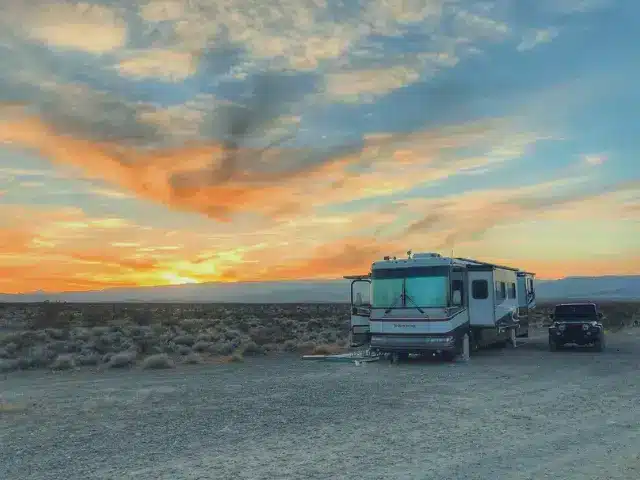
Point #4: You Can Boondock in Cities or in the Middle of Nowhere
Boondocking “purists” are most likely going to insist that it isn’t REALLY boondocking unless you are RVing in an extremely remote location with no other human or dwelling in sight.
This remote location might be an approved Bureau of Land Management (BLM) boondocking location, a National Forest location, or a number of other options. Those are the two primary sources for locating a good spot.
Bureau of Land Management
The U.S. Bureau of Land Management (BLM) manages 245 MILLION acres of lands and the U.S. Forest Service manages over 90 MILLION acres. It’s all ours to explore and enjoy. For free! Do not miss out on this national treasure.
But as I mentioned above, we boondocked in a Cracker Barrel parking lot right in the middle of Colorado Springs. It was loud. We didn’t get any sleep and we were a little grouchy the next morning.
On the bright side, we woke up and walked into Cracker Barrel for breakfast. So not all was lost! Don’t let our lack of opportunities dissuade you from experiencing dispersed camping amongst the natural beauty of U.S. National Forests. There are many natural wonders to explore beyond the Cracker Barrel parking lot.
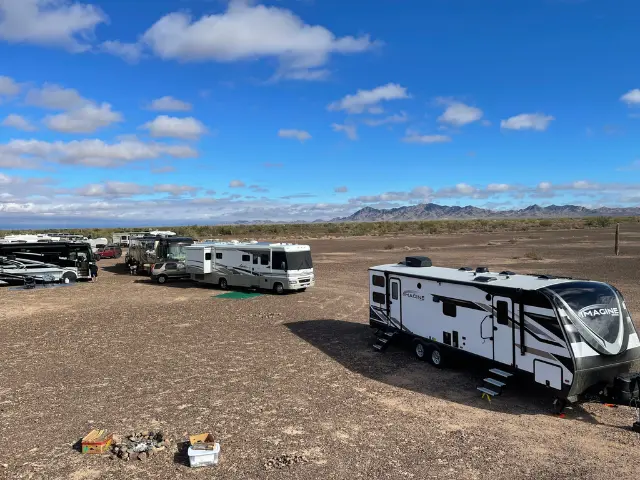
Permission is King
Believe it or not, many Walmart locations will allow you to park your RV and sleep in it overnight in one of their parking lots. It is always up to the management team at each location and you should always ask for permission, but it’s a great option if you are properly equipped and needing to save some cash.
The same “ask for permission” rule applies to any private business where you are interested in parking. Always ask, folks! If you choose not to, you could find yourself nailed with a fine, awoken in the middle of the night by an unfriendly visitor, or even towed away if you happen to leave your RV in that space unattended.
Be sure to check out the Allstays Camp and RV app for locating some great parking lot options and other services for RVers.
To explore your boondocking options further, head over to Campendium and do some searching for locations in your area. You will be amazed, I guarantee it.
Point #5: Camping on Approved Private Land
When we started our 17 months of RV travel back in May of 2017, one of the memberships I purchased early on in our travels was from Boondockers Welcome.
This is a membership for RV owners and RV travelers. Through Boondockers Welcome, you can connect with U.S. and Canadian home owners and land owners who allow you to boondock on their property for a night or two. As a member, there is no charge. (Yup, FREE again! Pretty cool.)
Now think about it: Any folks who are willing to open up their own personal space to random travelers from around the globe must be pretty awesome. Hospitality and the chance to meet some like-minded folks and build relationships is a great thing.
We parked in the driveway of a family’s home located just outside of Vancouver, British Columbia. We had an absolutely fantastic experience. For us, it actually worked out really well because they happened to have both a water and an electric connection for us. Once again, we weren’t technically boondocking. But I say it still counts.
**By the way, you should also absolutely check out the full benefits of a Harvest Hosts membership, another unique RV membership that often involves boondocking in some absolutely stunning locations.**
The majority of the locations you will find through this membership are “dry camping”. That means the site will not offer any water, sewer, or electrical connections. But, there are a few options that provide water or electric (or both). It’s worth the effort to search for one of those properties.
Point #6: Expand your Horizons, Enrich Your Adventures
I’ve said it before and I’ll say it again: I won’t hit the road again in an RV without being adequately equipped to escape the grid and go boondocking until my heart’s content. Seriously, that is a non-negotiable. Give me boondocking or give me death!
Why do I feel so strongly about this? Well, for a few reasons.
Unique Locations and Experiences
One, I’ve seen and heard the experiences of others who were able to enjoy this “other world” of RVing. Every time, I walked away drooling and a little envious. Their opportunities to truly escape, disconnect, and soak in the peace of open spaces just made me crave it all the more.
Financial Benefits of Boondocking
Two, I really want to take advantage of the financial benefits of boondocking while on the road. You may spend a bit more money upfront to either buy a rig that is ready to go off-grid, or to upgrade your RV with batteries, solar panels, internet connections, and water tanks.
That is definitely true. But having a one-time cost up front and not having the constant drain of nightly RV park fees always on your shoulders is an excellent trade-off in my mind.
What do you use that money for that you have saved through boondocking? Well, taking advantage of new experiences, of course, whatever that may look like for you. When you have more resources at your disposal because of the significant monthly savings, you use them however you see fit to enrich your own adventures.
Boondocking Offers Unique Adventures
When you are tied to only staying at RV parks and campgrounds with water, sewer and electrical connections, your options are naturally more limited. In addition to the more limited locations, you also limit yourself financially because of the additional cost of nightly stays.
But when you free yourself of those limiting factors via boondocking, you truly are free to create the adventure that is exactly right for your passions, interests and preferences. It kind of reminds me of one of those “Choose Your Own Adventure” books from when I was a kid. You have options, and you can make the choice that most interests and excites you.
So go on, choose your own adventure by diving into the massive and remarkable world of RV boondocking!
What Are Your Favorite Boondocking Locations?
We would love to hear from you! What are your favorite areas and locations for boondocking? Have you been to Quartzsite? Do you spend the peak season in a remote BLM area away from the crowds at National Parks?
Let us know what you think the best reasons are for boondocking! I know our readers would love to learn more from your experiences.
Safe travels, friends!
Related Reading
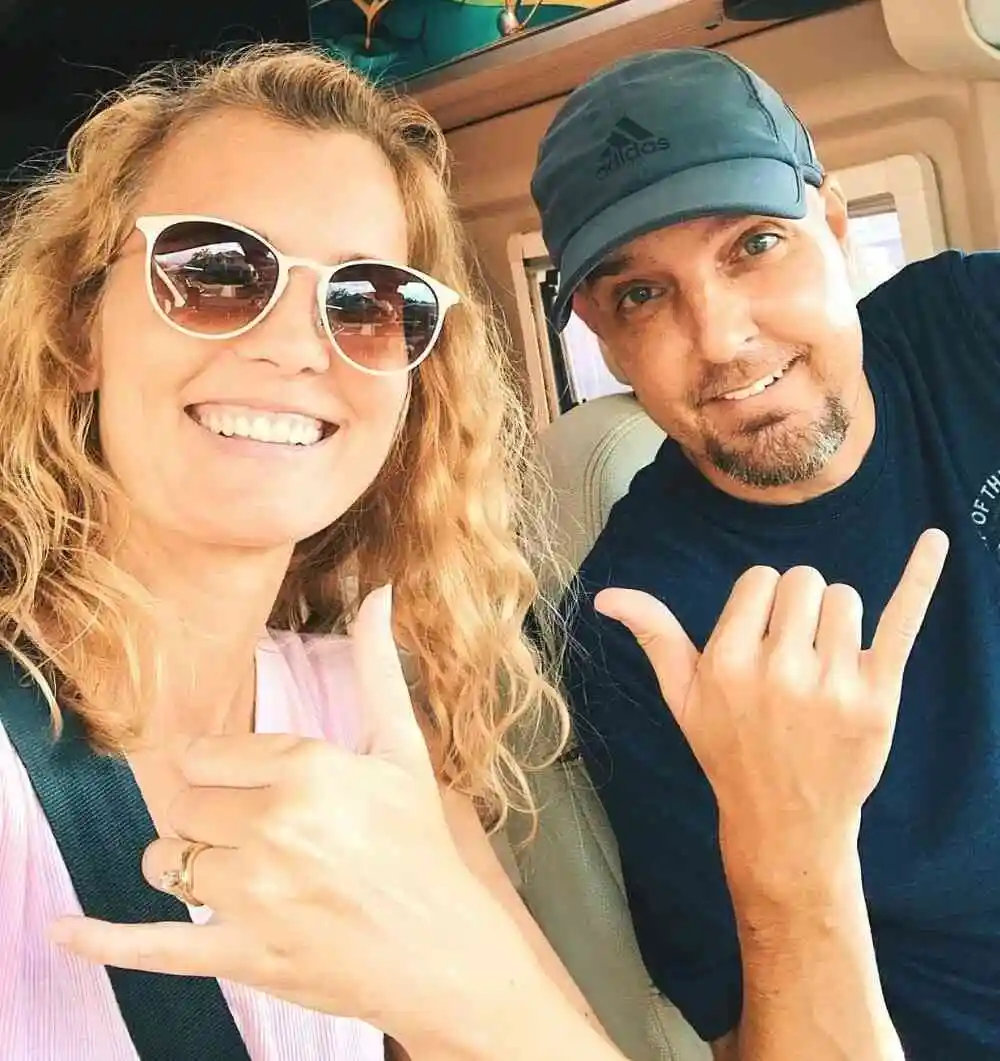
Todd loves a competitive game of table tennis, a breathtaking hike, and exploring new places. He lived and traveled in an RV with his family as they traveled throughout much of the US and parts of Canada. Todd has extensive knowledge about RV travel, safety, and accessories and has shared many of his stories here on TREKKN. When he’s not busy launching and building small businesses, you may find him staring at pictures of Glacier National Park (probably his favorite spot on earth).
